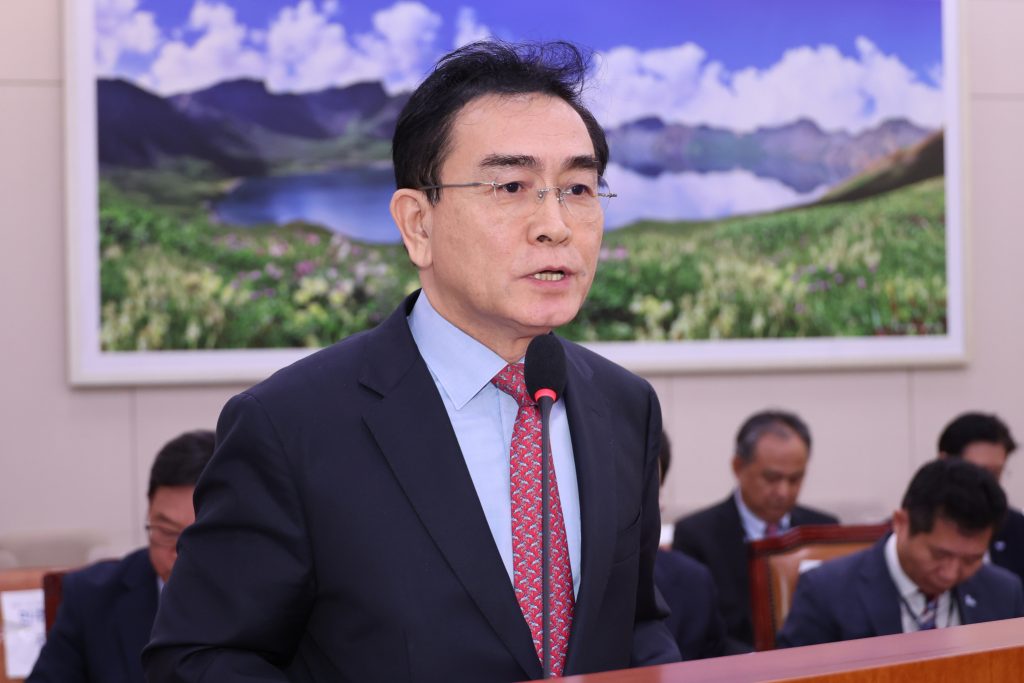Tae Yong-ho, the secretary general of the Peaceful Unification Advisory Council, made the remarks amid expectations that U.S. President-elect Donald Trump could revive his personal diplomacy with North Korean leader Kim Jong-un after he takes office in January.
“I think as long as Kim Jong-un is paid [for] his soldiers and military cooperation with Russia, he would not open dialogue with America or China because now currency keeps on coming,” Tae said in English during a podcast hosted by the Washington-based Center for Strategic and International Studies.

“That’s why he may concentrate all on the relations with Russia, but if the Ukraine war is finished, then Kim Jong-un may come back to his relations with China and whatever,” he added.
He called for the upcoming U.S. administration to make clear to North Korea that denuclearization of the Korean Peninsula is its primary goal.
“I think the new administration of America should continue to say to North Korea that denuclearization of North Korea is an unchangeable goal of America, [that] America would never compromise on this goal. That is, I think, very important,” he said.
“I think America should try every possibility to invite China to be on the [side] of America and the South Korean side.”
Touching on North Korea’s troop deployment to Russia, Tae said that the dispatch has been kept a secret in the reclusive state, as observers have started to mention the possibility of public pushback that could arise in the event of heavy North Korean casualties in the fighting against Ukrainian forces.
He also warned that if families of the deployed North Korean soldiers receive death notices or “sacrifice” notes from the military, they would be “very” upset.
“Because inside North Korea now, even North Korea has a very low birthrate. So there is only one child or two children in each family,” he said. “So parents cannot accept that their sons were killed not in defense of North Korea but in defense of Russia.”
Tae pointed out that if North Korean troops’ involvement in the war turns out to be successful, the reclusive leader might use the case to justify his regime’s development of nuclear weapons.
“If he is successful in the Ukraine case, he may say to the leaders and North Korean people that because of nuclear weapons, North Korea can even take these troops out of North Korea and help a big country like Russia, and that even a big country like Russia comes to ask for help to North Korea,” he said.
“[Kim would say] because of these nuclear weapons, he can send conventional weapons out of North Korea and even soldiers in return for huge hard currency. He may do a lot of things to justify his nuclear development domestically.”
Yonhap





